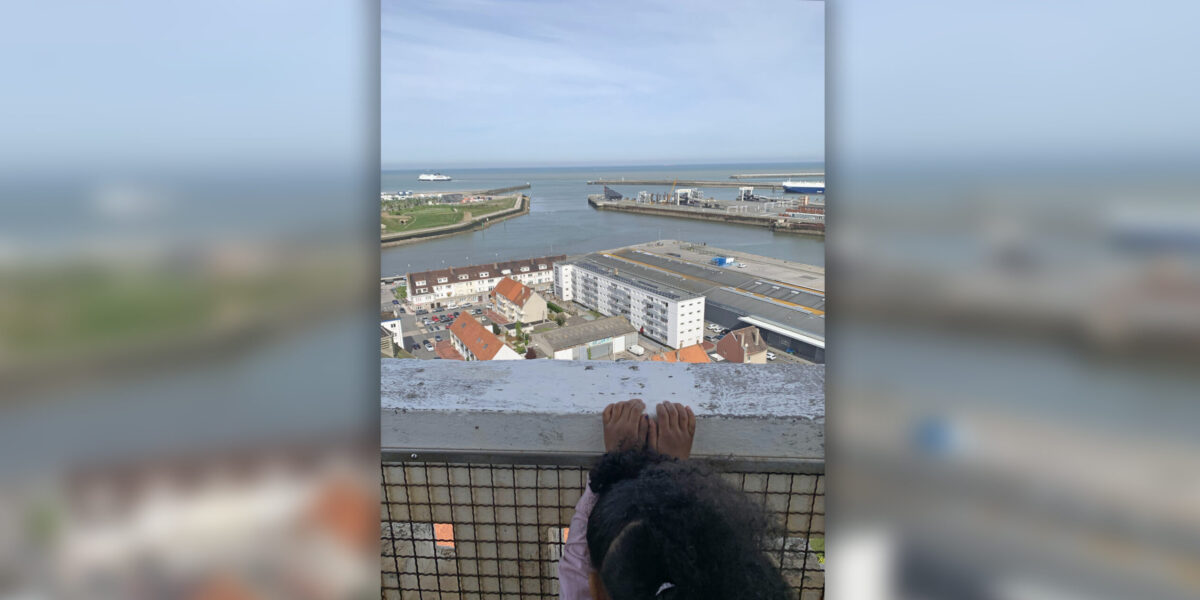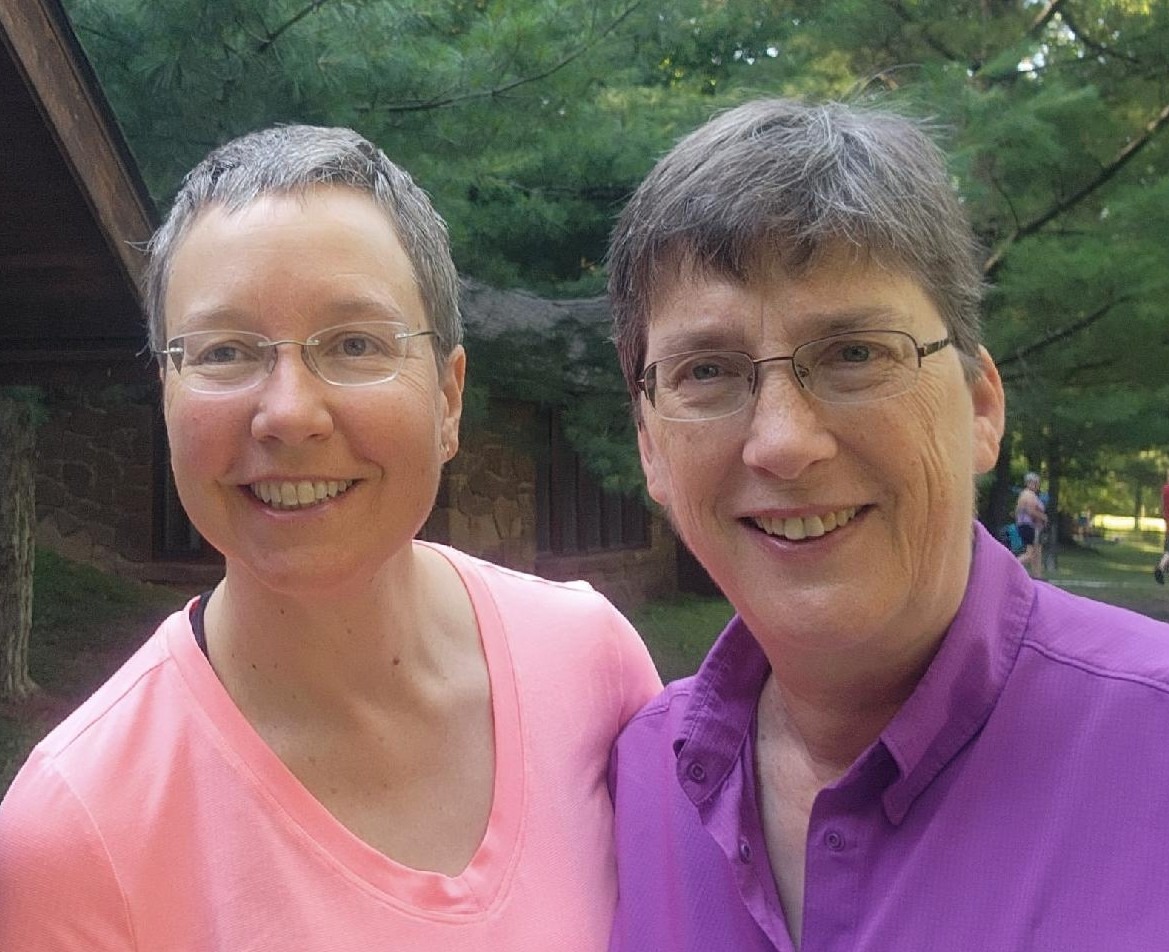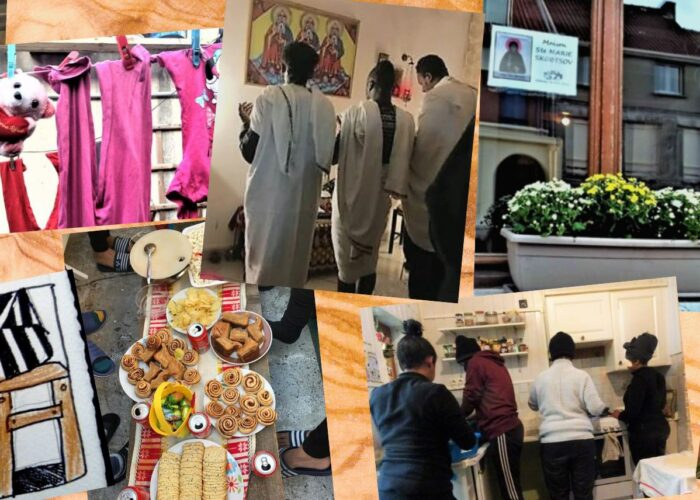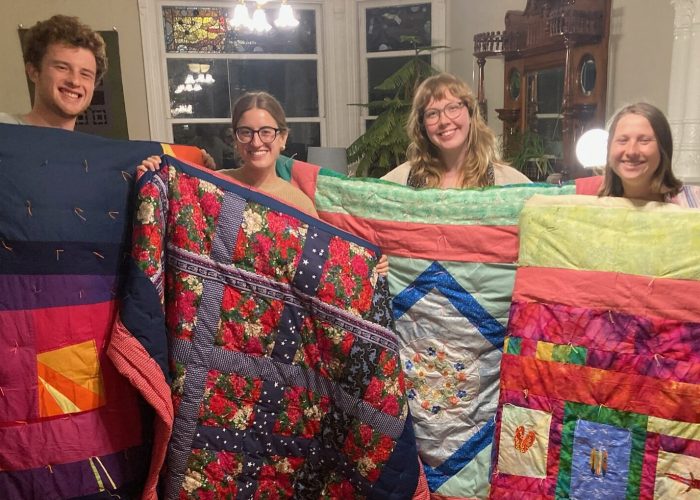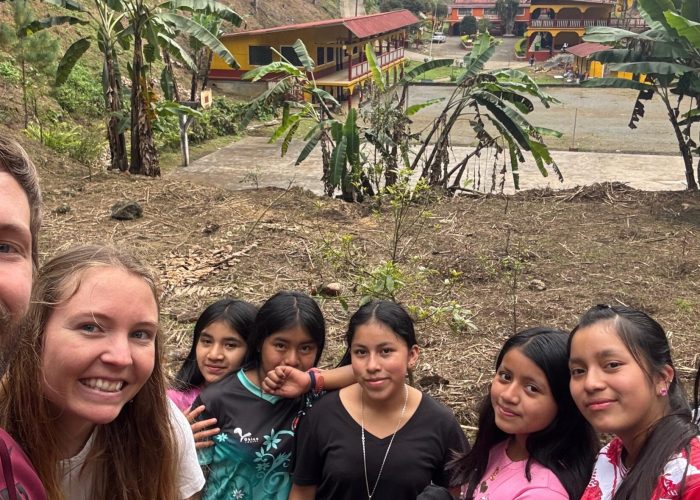SOOPers Barbara West and Kathy Howell spent six weeks volunteering at Maria Skobtsova House, a sanctuary for refugees, that maintains a prayerful presence in Calais, France. Upon their return, they shared reflections with their home congregation, Corvallis Mennonite Fellowship in Corvallis, Oregon.
Identifying information about Skobtsova House guests has been changed, including their names.
We went into this experience knowing it would be amazing, but we knew very little about what we were in for!
We arrived in Calais at the end of March, a time when weather had rendered the English Channel too dangerous to cross. As a result, many of the guests at Maria Skobtsova House had been staying there since January, or even October.
The house was home to four mothers (one of whom was pregnant), children — ranging from a bed-bound six-year-old with severe disabilities to a teenager — and two single women, one of whom was also pregnant. We were the newest house residents, unfamiliar with the routines and rules but we were awkwardly entrusted with heavy sets of keys that unlocked our volunteer bedroom; the front door which was always locked for safety; and the basement where items like food, toilet paper and even art supplies were secured.
Our role was to hold daily prayers; help with basic needs like grocery-shopping, dishes, and laundry; and connect residents with support, such as transportation to medical appointments. By the time we arrived, the women and children staying in the house had endured many “tries” — middle-of-the night attempts to board smuggler’s inflatable rafts in hopes of crossing the 21 miles to the United Kingdom.
Sadly, even when weather is good, tries are usually thwarted by police, wielding tear-gas and worse. These escalating police tactics regularly cause both children and adults to drown. One mother and her two daughters did successfully cross during our stay, as did one of the single women.
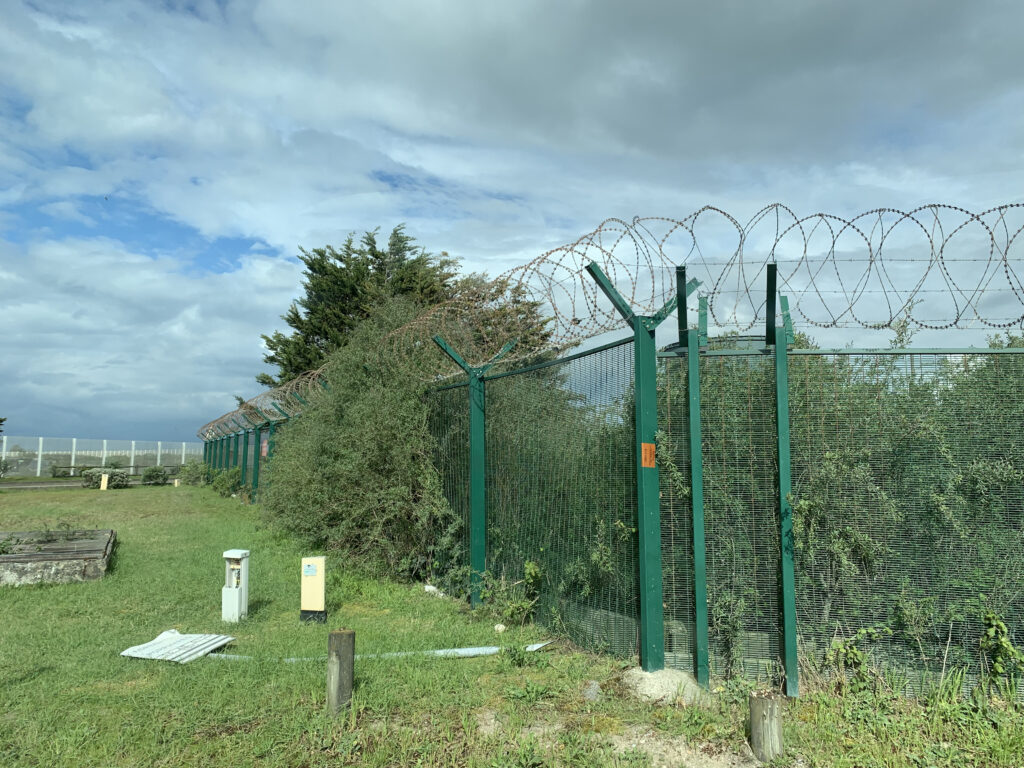
Successful crossings were celebrated, but they also generated jealousy, frustration and a mix of other emotions.
The children’s behavior reflected the household’s collective anxieties. We learned the importance of taking the kids outside and giving them individual time so they weren’t competing with anyone else for space, toys, or an adult’s attention. Simple outings, like coaxing a pair of sisters onto a public transit boat to cruise the neighborhood canal, walking to the park, or climbing to the top of the lighthouse brought joy and a sense of normalcy. Barbara’s willingness to brave the cold beach water offered the kids with another tangible way for them to process their trauma.
One seven-year-old girl approached the lapping waves of the channel muttering softly to herself, “I’m going to die. I’m going to die.” Fortunately, the cold water broke her train of thought as she and Barbara ran screaming in and out, over and over, until she was waist-deep, scowling at the on-coming waves with triumphantly raised biceps.
Tragically, after the news reported the drowning deaths of five more refugees, including a four-year-old girl, leaving the house for something as simple as a walk to the neighborhood park became challenging. One seven-year-old boy, usually eager for activities, would suddenly claim he needed to go to the hospital for a non-existent injury. His younger sister, Arry, would lie on the sidewalk and could only be coaxed up with a promise of a one-on-one trip to the smaller neighborhood park which she named “Arry’s Park,” where she and Kathy made up their own songs.
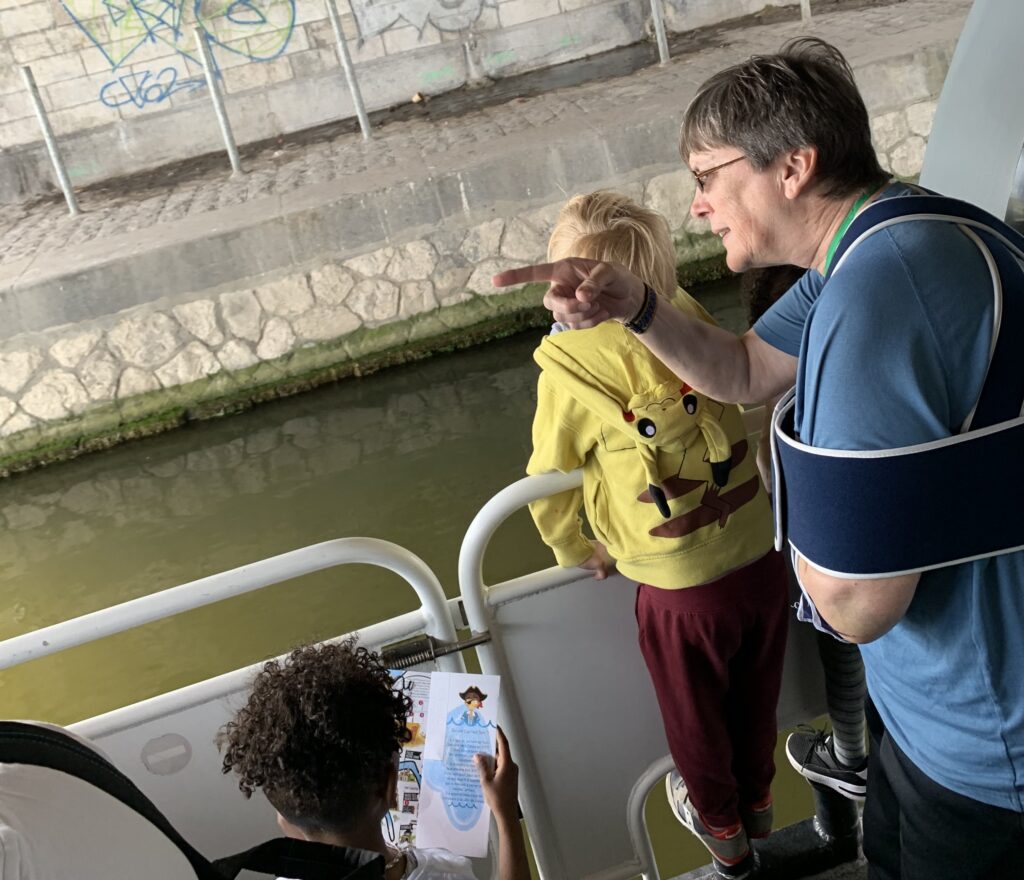
Typically, we held daily prayer time in the morning, but when household tensions overwhelmed us, we would declare “Prayer Time!” We’d pull the sheer curtains between the living and dining rooms, light a candle, and start singing. Through the act of prayer, even if started in desperation, we came to believe that prayer was, in fact, all that God required of us. The children, despite their initial restlessness, usually joined in the singing, sensing the sanctity of the moment. Suddenly it wouldn’t matter that we were almost out of onions, someone had ruined someone else’s drawing, or someone’s latest favorite toy had been destroyed.
Hearing the children singing prayer-time songs throughout their day, inspired us to re-work an old favorite. We hoped this lullaby would provide a comforting image of guardian angels for the kids to carry with them during their next “try.”
“Sleep my child and peace attend thee,
All through the night.
Guardian angels God shall send thee,
All through the night.“God’s love with me sleeping, waking,
Angels ‘round me — morning, evening,
Loving me in all my being,
All through the night.”
A new guest’s arrival illustrated the transforming power that Maria Skobtsova House exerts on us all
Samira arrived on a Friday evening, two weeks before our departure and two days before her 33rd birthday. She had never been married or had children, unusual for a woman from Sudan. She had walked alone for nine days from Belgium, often treading through mud so deep it pulled her shoes off, forcing her to continue forward in her socks. Initially, she was reluctant to speak, despite her skillful, self-taught English.
When Barbara showed her the washer and dryer and asked if we could start a load of her clothing (a standard precaution to keep insects out of the house) she admitted she had no possessions other than the sweatpants, sweatshirt, shoes and underclothes she was wearing. Barbara took her upstairs to look through boxes of donated clothes. She began talking a stream of rapid speech and, despite her exhaustion, had a hard time stopping. She showed videos on her phone — a wavering camera moving along the white stripe at the edge of a road at night. “I was so scared. I was so scared,” she kept saying.
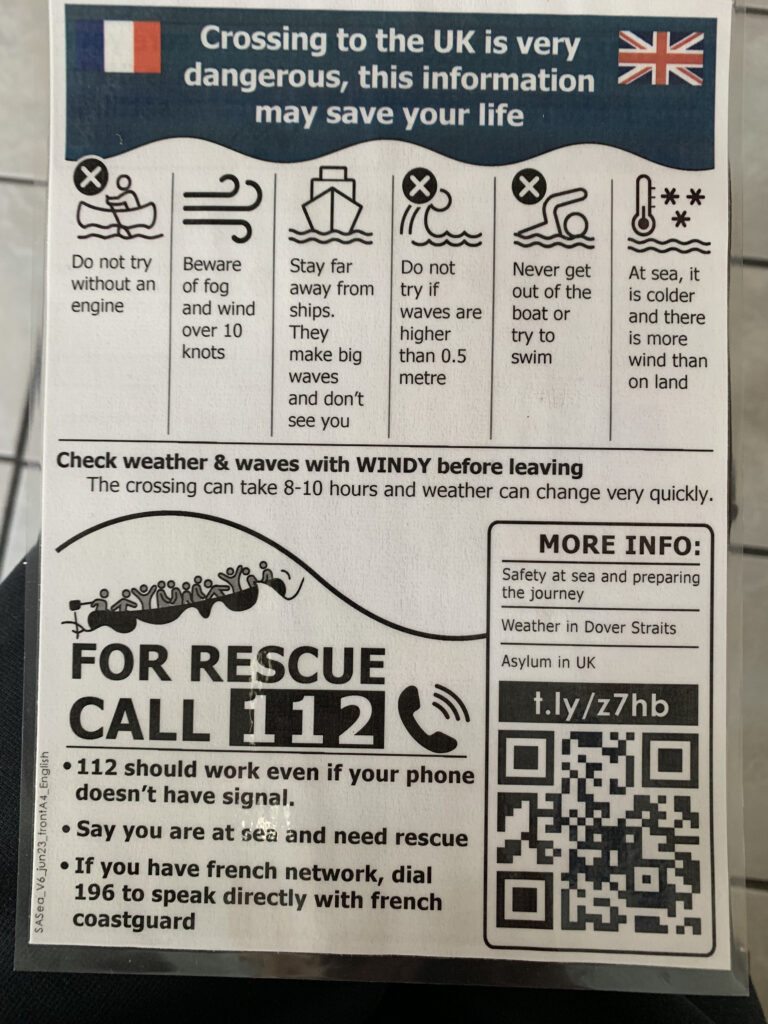
Croissants were one of Samira’s favorite foods, so we bought some on Sunday for her birthday dinner, but, despite her promise to attend, Samira wasn’t there.
We saved them to try again on Monday night. Sadly, Samira was a no-show for dinner again — something that could hurt her status as a guest in the house as attendance at communal dinners is one of the few expectations. The doorbell rang while some of us were still at the table. It was Samira. We passed around the croissants and sang Happy Birthday while she, at last, sat with us at the table, crying quietly. Days later, she confided that she’d been missing dinners because she was going to the beach every evening to cry.
After this, she attended dinners regularly, engaging more with other women. We often found her doing household dishes and laundry or playing with the children. We saw her transition from desperation and a focus on basic needs to finding her role in the household, gaining a sense of acceptance and community.
On our last night in Calais, as our group dinner came to an awkward end, Samira invited us to stay for tea. We followed her lead, realizing she’d discerned a need for ritual that we hadn’t. We shared tea, gave our final hugs, handed over our heavy sets of keys, and walked out into the night – leaving with a sense of having received for ourselves what we’d hoped for others.
“God’s love with me sleeping, waking,
Angels ‘round me — morning, evening,
Loving me in all my being,
All through the night.”
About SOOP
Service Opportunities with Our Partners (SOOP) offers flexible service terms at 60 locations for individuals ages 25+ and families of all ages. Housing and meals are sometimes provided.
From valleys to mountains to shores, SOOP has diverse and rewarding opportunities for all kinds of interests and skills. Trim roses and trees at an arboretum, work in a library, apply your carpentry skills, teach children—we have an experience for you that you will never forget.

